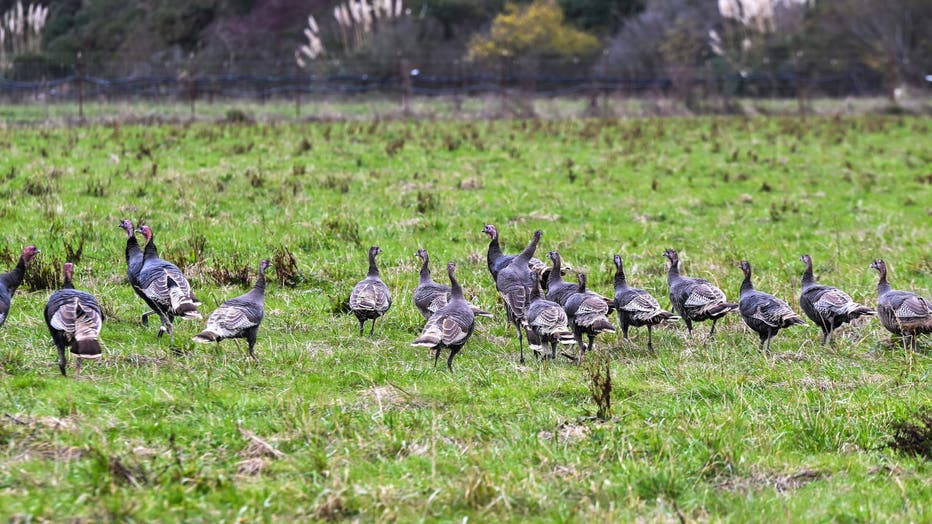Bird flu case confirmed in Oakland County by Michigan Dept of Agriculture
PESCADERO, CALIFORNIA - DECEMBER 20: A view of chickens and roosters at a farm as California declares state of emergency to prevent new public health crisis on Bird flu in Pescadero, California, United States on December 20, 2024. (Photo by Tayfun Co
FOX 2 - A case of the highly pathogenic avian influenza was detected in a backyard flock from Oakland County, the state announced Thursday.
The case was found by the Michigan Department of Agriculture and Rural Development and the Michigan State University Veterinary Diagnostic Laboratory.
It is the second case of HPAI in Oakland County since the virus was first detected in Michigan back in 2022.
The affected premises, which is not being named, is currently under quarantine, and the birds will be depopulated to prevent disease spread.
HPAI is said to be a highly contagious virus that can be spread from flock to flock, including by wild birds, through contact with infected animals, by equipment, and on the clothing and shoes of caretakers.
According to the U.S. Centers for Disease Control and Prevention, the public health risk associated with avian influenza remains low.
The state's Department of Agriculture says bio-security measures and personal protective equipment can help protect the health of Michigan's domestic animals and the public.
No birds or bird products infected with HPAI will enter the commercial food chain. As a reminder, people should properly handle and cook all poultry and eggs.
Whether it's a few backyard birds or a large commercial flock, following a few key steps is fundamental to protect the health and vitality of Michigan's domestic birds:
The state is advising residents about contact between domestic and wild birds by bringing them indoors or ensuring their outdoor area is fully enclosed.
- Wash your hands before and after handling birds as well as when moving between different coops.
- Disinfect boots and other gear when moving between coops.
- Do not share equipment or other supplies between coops or other farms.
- Clean and disinfect equipment and other supplies between uses. If it cannot be disinfected, discard it.
- Use well or municipal water as drinking water for birds.
- Keep poultry feed secure to ensure there is no contact between the feed/feed ingredients and wild birds or rodents.
Domestic bird owners and caretakers should watch for multiple sudden deaths in the flock, a drop in egg production, a significant decrease in water consumption, diarrhea, sneezing/coughing, or an increase in sick birds.
If avian influenza is suspected in domestic birds, contact MDARD immediately at 800-292-3939 (daytime) or 517-373-0440 (after-hours).
For Wild Birds: If anyone notices what appears to be unusual or unexplained deaths among wild bird populations, please report these cases to the Michigan Department of Natural Resources by calling the DNR's Eyes in the Field app. Choose the Diseased Wildlife option among the selections for Observation Forms.
And by calling the DNR Wildlife Disease Laboratory at 517-336-5030.

PESCADERO, CALIFORNIA - DECEMBER 20: A view of turkeys at a farm as California declares state of emergency to prevent new public health crisis on Bird flu in Pescadero, California, United States on December 20, 2024. (Photo by Tayfun Coskun/Anadolu v

